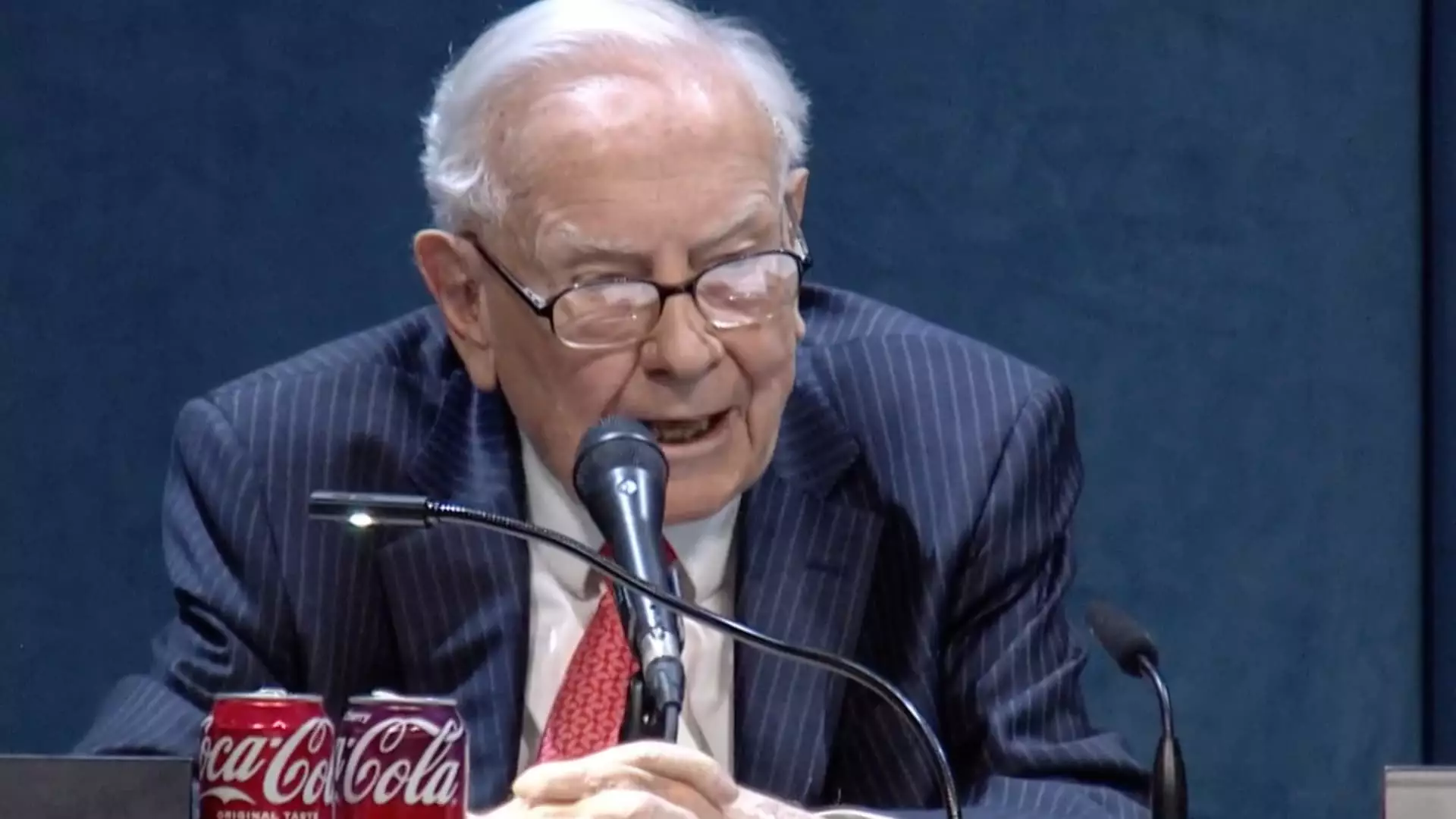Warren Buffett, often hailed as the “Oracle of Omaha,” is well-known for his astute financial insight and long-term vision. At the recent Berkshire Hathaway shareholder meeting, Buffett voiced significant concern about the administration’s aggressive trade policies, pointing out that treating trade as a weapon is fundamentally misguided. Although careful to avoid naming President Trump directly, his critique was undeniably clear, and it stirred a critical conversation surrounding America’s economic strategies.
Buffett adeptly argues that trade should be viewed as a pathway to mutual prosperity, rather than as a battleground. His assertion that “the more prosperous the rest of the world becomes, it won’t be at our expense” proposes a novel angle that often gets lost in toxic partisan debate. In these times of rampant nationalism, where protectionist sentiment is on the rise, Buffett’s appeal for cooperative global engagement signifies a compelling counter-narrative; fostering economic interdependence is not just pragmatic but essential for long-term security.
The Dangerously Misguided Reality of Tariffs
One of the most alarming notions Buffett presented is the idea that tariffs can be perceived as acts of war. Historically, the use of punitive tariffs has led to tit-for-tat retaliation from other nations. We’ve already witnessed this with China, which has responded to American tariffs with retaliatory actions that could spiral into an escalating trade conflict. The economic repercussions of such conflicts can be vast and far-reaching, resulting in job losses, inflated prices for consumers, and a bewildered stock market.
The former investment banker draws attention to a simple truth: protectionism is detrimental in the long run. By isolating oneself from the global marketplace, a nation risks stagnating its economic growth. In an ever-shrinking world heavily reliant on interconnected supply chains, it is insensate to believe that placing walls around the American economy will yield anything but undesirable consequences. Buffett’s assertion that “it’s a big mistake” resonates deeply, reminding us that ignorance of global realities and interdependencies can endanger not only our economy but our geopolitical stability as well.
The Psychological Shift: Attitudes Towards Trade
Critically, Buffett also emphasizes the psychological impact of aggressive trade policies. Nationalism can breed resentment, isolation, and an us-versus-them mentality. This shift in attitude doesn’t just affect foreign relations; it trickles down to domestic lives. If Americans begin to view each other through a lens shaped by protectionism, divisiveness can grow among communities, further complicating an already polarized society.
Buffett’s words hint at a precious truth; when citizens become hostile towards global trade partnerships, particularly in a nation that prides itself on being a melting pot of cultures and ideas, the very fabric of societal cohesion can fray. The resultant landscape becomes one where cooperation and innovation—two essential pillars of successful economies—begin to erode.
Challenging the American Narrative of Greatness
Buffett argues that America’s current protectionist stance is not only folly but also an affront to the historical narrative of American progress and innovation. The reality that the U.S. has risen from humble beginnings over the past 250 years to become a global leader requires reassessment of how this success is maintained in a complex global arena.
Buffett reflects on how the world views the United States, stating, “when you have seven and a half billion people that don’t like you very well,” it’s a potent reminder that the future hinges significantly on how we relate with the global community. Dismissing this sentiment risks exacerbating feelings of animosity and resentment, ultimately undermining the very position of power that America has achieved.
Market Volatility and Economic Uncertainty
As a prominent investor, Buffett’s acknowledgments on the volatility stemming from tariffs cannot be overlooked. The uncertainty they create leads to unpredictable market reactions, which further compounds the dilemma facing American corporations and consumers alike. In his own experience, Buffett has been in a defensive mode, recognized by a notable sell-off amid fears regarding tariffs and other global uncertainties—worth over $134 billion in stocks. While conservative caution can be wise, it also reflects a broader sentiment of anxiety about the future trajectory of American commerce.
The reaction to tariffs and trade wars is not just a corporate concern; it resonates throughout the streets, impacting families and individuals. Facing potential economic contraction, the average American’s financial future hinges precariously on decisions influenced by a volatile political climate.
Through these nuanced reflections, Buffett adeptly reveals the intertwined fates of international relations and domestic prosperity. The idea that America must protect itself at all costs is not just misguided; it is a dangerous path that disregards the lessons of history and the interconnected nature of global commerce.

